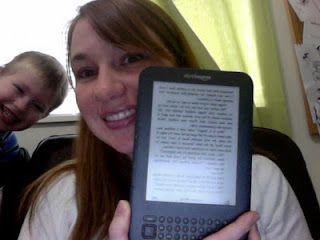This post, of course, got me thinking a lot about my journey the past few years. Particularly the advice that has been helpful, the advice that hasn't, and the advice that is deceptively helpful but can be very damaging.
The past year in particular I've been stressing over what kind of writer I'm supposed to be. I write YA, but I tend to do very big genre hops from project to project. Let's look at my last, say, five finished projects (as in full 1st draft): Contemp Fantasy, Super powers, Sci-fi, Steampunk, Contemporary. This concerned me because I hear over and over again that you need to build a brand! You need to establish yourself in one genre so your readers will know what to expect! This is your career at stake! DO NOT MESS IT UP.
I was freaking out about this. I felt like I wasn't allowed to write a contemporary because the project I had on sub wasn't, which was one of the major reasons it took me a year to commit to finishing that contemporary even though I secretly loved it.
At one point I was even considering switching to writing contemporary. This would be the ideal time, I thought, to make that change. I still don't have a book deal. I have had a fresh start with a new agent. My subs on the current project are quickly dwindling as the rejections roll in. Etc.
So I called Anna, my agent, because that's what you do when you need help making Big Decisions like this. I told her that I was struggling with my identity as a writer, and I wasn't sure if I wanted to be locked into the "brand" that I was currently in. What she said surprised me. Basically, she told me that wasn't something I needed to worry about. She said, "You're the artist—it's your job to write what you love. It's my job to figure out where that writing belongs."
(I cannot emphasize how wonderful Anna is. She keeps a low profile, which I'm pretty sure is because the writing world would be overwhelmed by her awesomeness otherwise.)
In that moment, it felt like she'd unlocked the handcuffs I'd unknowingly put on myself. Her advice was the exact opposite of everything I'd ever heard. It may not be for everyone, but it's what I needed very, very much.
That freedom—to write whatever I loved—got my fingers typing again. Instead of feeling guilty for every strange idea I want to chase, I feel like I can pursue what makes me happy. Oh, how I'd forgotten that's what writing is really about. I had lost a lot of my passion. And if you don't have passion for what you're working on, it's extremely hard not only to finish it, but to give it life. Yes, brand is important, but for me writing what I love is more important. That may ruin me, but if it does so be it.
For a writer who's been in limbo for quite a while, I've got to admit that I've been happier than I have been in a long time. And it's not because I have deal prospects or whatever. It's because I love what I'm writing, and my opinion is really the only one I can control. So I will write what I makes me smile, what make my heart flutter, what keeps me up at night with ideas and characters and dialogue. And I will leave it up to my smart, wonderful agent to find the right place for my books.
I think sometimes we try so hard to be the writer we're supposed to be. We try to follow all the rules because we think—hope, hope, hope—that if we do it will equal success. Well, sometimes it doesn't. Like I've said many times: Not every piece of advice you read is for you. It might take time to realize that some advice is hurting more than helping, but when you do figure it out just let it go. You're the artist. Do what you need to foster your creativity and happiness, and everything else will come when it comes.









